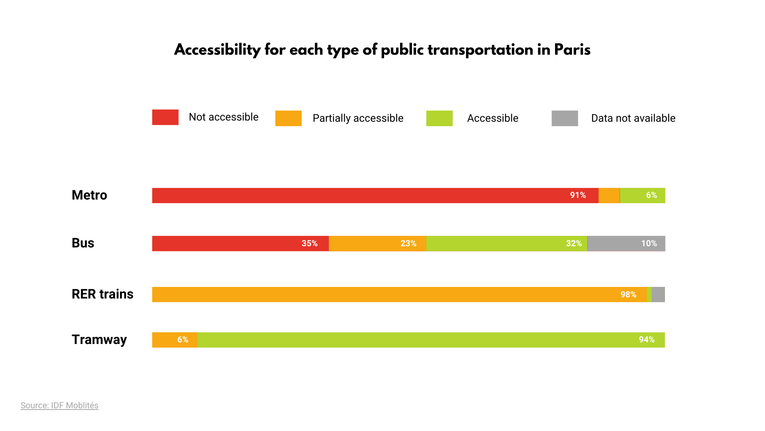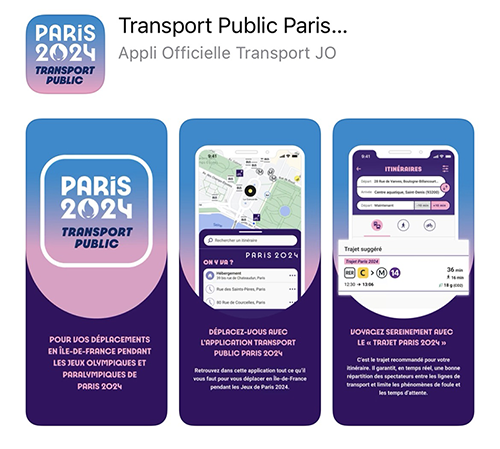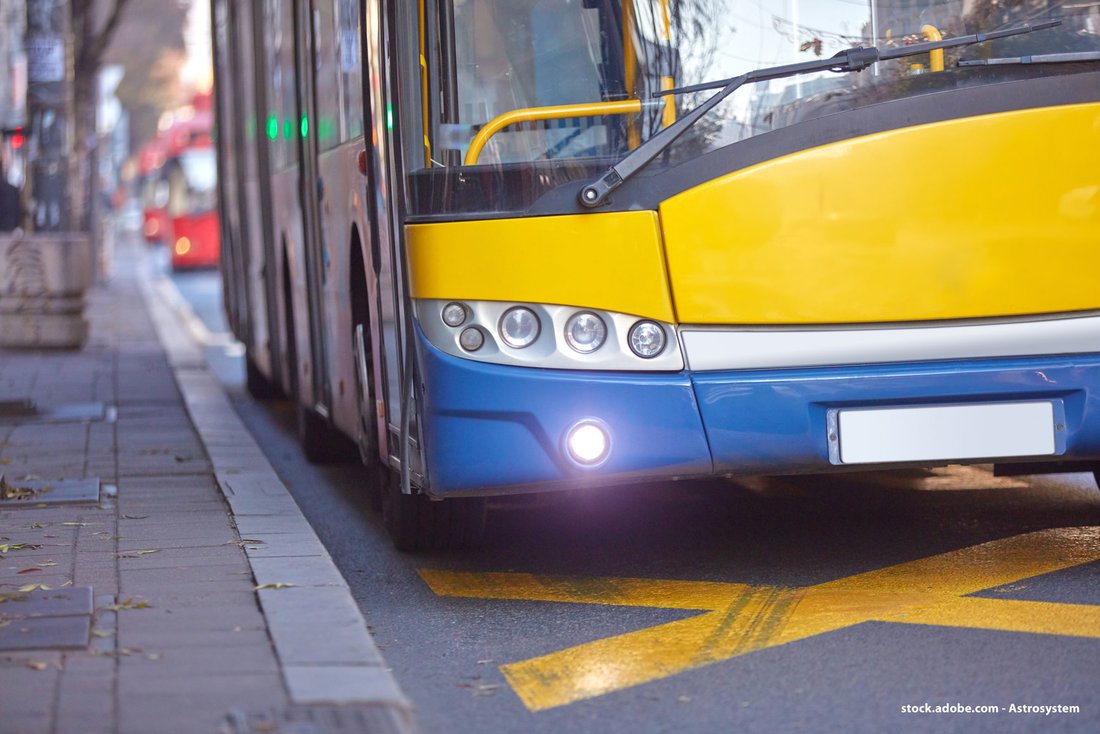Public transport during the 2024 Olympics and Paralympics
During the 2024 Olympic and Paralympic Games in Paris, public transportation is one of the main ways you can get around the city and reach your events. Can you get between two venues by bus? How much does a metro ticket cost? Find out all you need to know in this article.
The public transport network in Paris and its region offers a variety of transport modes.
- The Metro: it is a popular and rapid transit system for public commute in Paris.
- Bus: there are hundreds of stops throughout the city. However, during the games, certain bus routes may not be able to reach their terminus due to zone restrictions.
- RER: The RER is a rapid transit train that functions like the metro, but with significantly less stops, making it faster.
- Shuttle Busses: Paris 2024 is currently working with public transport companies to increase the number of vehicles in service and to set up shuttles to reach some competition venues that are difficult to access. More information to come.
- Trams: the tram lines only run in the city’s outskirts and therefore visitors don't usually take them.
- Car Sharing: Here is a list of certified car sharing operators in Ile-de-France: Certified car-sharing operators | Île-de-France Mobilités (iledefrance-mobilites.fr)
- Bicycles: You can use one of the many self-service Velib’ bike hire locations. Below is a map of these stations, as well as the number of bicycles currently available at each: Carte des stations - Vélib' Métropole (velib-metropole.fr)
During the Olympics and Paralympics, stations will be open from 5:30 in the morning until 1:15am on weekdays, and until 2:15am on Friday and Saturday nights.
You can either buy single tickets or a “Pass Navigo Easy”. The pass costs €2 and allows you store up to 30 tickets on it. There is no individual name on the pass, which means it can be successively used by different users.
Ticket prices will increase compared to usual prices for the duration of the 2024 Olympics. The surcharge will be effective from 20 July to 8 September 2024. Single metro tickets will rise from €2.10 to €4, and a book of ten tickets from €16.90 to €32. Train and RER tickets will cost €6.
Tourists can opt for a Paris 2024 pass (“Passe Paris”), which will enable them to travel throughout the region for a gradually increasing rate which ranges from €16 per day to €70 per week. The pass gets cheaper the more days you purchase. The pass offers illimited access to all competition sites and "fan zones", as well as the two main airports of the region (Orly and Charles de Gaulle). You can purchase the pass via the forthcoming Transports Publics Paris App or online at this link: Paris 2024 Pass | Île-de-France Mobilités (iledefrance-mobilites.fr)
If you hop on a bus without a ticket, you can buy one directly from the bus driver. From the 20 July 2024, bus tickets will cost €5.
Good to know: metro tickets never expire. You can therefore stock up on tickets before the price increase and use them during the Olympics and Paralympics.
It is possible to buy tickets and passes:
- Directly on the “Transport Public Paris 2024” app
- On the Île-de-France mobilités app
- At ticketing machines and counters in train stations, metro stations and airports
- Online to be delivered to your home address in their physical form

All the bus lines, tramway carriages and stations and RER stations in Paris are accessible for disabled people. There are a couple of plans in place to make the Olympics and Paralympics more accessible for tourists with disabilities.
The Transport Paris 2024 App:
This new app dedicated to public transportation during the Olympics integrates information regarding the accessibility of different transport methods and includes a “wheelchair user” feature which displays only select wheelchair accessible routes.
The “Navette”:
200 vans will, upon reservation, transport wheelchair users to and from competition locations. These vans will depart from 8 stations:
- Austerlitz;
- Gare de l’Est;
- Gare de Lyon;
- Gare du Nord;
- Montparnasse;
- Saint-Lazare;
- Bercy – Bourgogne Pays d’Auvergne ;
- Rosa Parks (RER E) in the 19th district of Paris.
The service costs €4 per person per ride, or €8 round trip.
To reserve, check the email confirmation you received after purchasing a PFR (Personne en Fauteuil Roulant) ticket from the official Olympic Games website. Click the link provided to you in the email to access the reservation portal. Reservations are compulsory and must be made more than 48 hours before the event.
More information on Paris 2024 - Practical information accessibility
Metro:
29 Parisian metro stations are accessible to people in a wheelchair.
Line 14 is fully accessible to people with reduced mobility, from Orly airport to Saint-Denis Pleyel.
You can find lifts in service on Shared from elevators. (iledefrance-mobilites.fr)
There is a dedicated accessibility platform for Île-de-France, called INFOMOBI. It is both a call centre, available 7 days a week, from 7am to 10pm, at +33 09 70 81 83 85 (this number might be surcharged if you have a subscription with a foreign operator), and a centre providing personalised responses by email to any questions and requests for information relating to accessibility in Île-de-France.
RER (Assist’enGare):
100% of RER lines A and B are accessible, as well as all the train stations serving the Olympic venues.
Assist'enGare provides free assistance from a designated meeting point to your spot in the train or at RER stations in Paris.
To use this service, however, it is recommended to make a reservation 3 months before the date on which you plan to travel, either:
- Via Internet
- By phone from 8am – 8pm, at +33 09 72 72 00 92
- Via RogerVoice
To find an accessible itinerary from start to finish and anticipate your needs, you can use this feature from “Île-de-France Mobilités” and tick the box “Find the routes suited to passengers in a wheelchair” under “Access facilities”: Journey planner (metro, bus, tram, RER, train, bikes...) (iledefrance-mobilites.fr)

The public transport authority “Île-de-France Mobilités” launched a mobile application. The application, called “Transport Public Paris 2024”, is now available in 6 languages (French, English, Spanish, Italian, Portuguese and German) on iOS and Android. It includes a route planner, personalised information on traffic and a ticketing module. This app features a special algorithm designed to limit congestion and find the quickest route to destination. To make use of this feature, choose “Paris Journey 2024” in pink at the top of the app’s route planner.
Good to know: the same route planners’ algorithm used by the official app will also be used by private navigation apps as well as SNCF and RATP apps.
Agents of SNCF, the national railway company, and agents of RATP, the company that operates public transport systems in Paris, can help you when you want to buy tickets or have a question about public transport.
In order to facilitate communication, these agents are equipped with translation devices. RATP and SNCF translation devices can respectively translate to 16 and 130 languages. You can either read the translated text on screen or listen to it via the device.
The most impacted lines are likely going to be (for metro, tram and train respectively):
- Metro: line 1, line 4, line 5, line 6, line 7, line 8, line 9, line 10, line 12, line 13 et line 14
- Tram: T3a, T3b and T11
- Train : line L (direction Versailles Rive Droite), line N, line P (direction Meaux) et line U
- RER B, RER C and RER E
Plan your route beforehand by using the available navigation apps (See above “How can I plan my route around Paris?”).
Yes, a number of bridges, metro and train stations in Paris are closed during the Games. Plan your journey in advance to avoid moving around in Paris on this day. You will not be able to rely on public transportation as usual.
For the tramway, the Porte de Versailles and Porte d'Issy stations on the T2 will close on 29 August and for the whole duration of the Paralympic Games.
Bus lines will be diverted if they cross the security perimeter, and therefore the bus will not stop at certain stations.
Regarding the metro, Concorde and Tuileries stations on line 1 will remain closed until 1 September. Concorde station on line 8 will reopen on 2 September, and line 12 on 22 September. On lines 1 and 13, Champs-Élysées - Clemenceau station, which reopened after the Olympic Games, will close again on Thursday 22 August, until 8 September.
- Bike Rentals: One of the most attractive and efficient alternatives during the games is Paris’ extensive network of bike rentals and bike lanes. This bike lane network will allow visitors to reach every competition site except Villepinte. For an overview of these routes: Our public transport network: Bike | Île-de-France Mobilités (iledefrance-mobilites.fr). Velib is the easiest way to rent bikes in Paris. 40 percent of Velib bikes in the Paris metropolitan area are electric. It is easy to recognize the city bikes by their bright green colour; E-bikes, on the other hand, are blue.The best option is to buy your ticket in advance, available on velib-metropole.fr or with the Velib’ App. Alternatively, there are also pay stations on the street.The tarifs are based on renting duration and whether you choose a bike with or without electric assistance.
- Scooters: So called “free-floating” scooters are not available for rent in Paris. Since August 2023, almost the entire fleet of scooters in the public space has been removed. Nevertheless, it is still possible to rent an electric scooter from a physical store. Unlike with “free-floating” scooters, these must be returned within opening hours to the rental store. You will either pay an hourly or daily rate.
- Car-sharing: check the list of certified car-sharing operators in Paris : Certified car-sharing operators | Île-de-France Mobilités (iledefrance-mobilites.fr).
- Car-pooling: check the list of certified carpool companies in Paris: Carpool companies operating in Ile-de-France | Île-de-France Mobilités (iledefrance-mobilites.fr).
- On-demand transport: Public transport across the Île-de-France region | Île-de-France Mobilités (iledefrance-mobilites.fr).
You will find all the practical information for travelling to and from the different Paris airports on the following websites:
- First, contact the transport company in writing. Retain proof of your correspondence.
- In the event that this is unsuccessful, proceed as follows:
- Residents of France can receive assistance from a consumers’ association, whose contact information is available on the DGCCRF’s website. You can also report your problem with the company on the SignalConso platform.
You can also contact the Alternative Dispute Resolution (ADR) body of the trader you have an issue with. Here are some examples for public transport companies:
- For a problem with the RATP (metro, bus and tram), contact the RATP Group Mediator.
- For a problem with the SNCF (RER trains), contact the SNCF Consumer Mediator.
- If you live in another EU Member State, Iceland or Norway, the European Consumer Centre for your country can assist you. Visit the ECC Network website for its contact information.
- If you live in a non-EU country, contact the embassy or consulate of your country in France or report your dispute on the website econsumer.gov, via the complaint form or contact the members of consumersinternational.org.
Funded by the European Union. Views and opinions expressed are however those of the author(s) only and do not necessarily reflect those of the European Union or the European Innovation Council and Small and Medium-sized Enterprises Executive Agency (EISMEA). Neither the European Union nor the granting authority can be held responsible for them.


